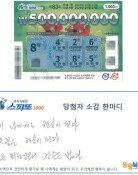Korean doctors criticize unfair treatment by the government
Korean doctors criticize unfair treatment by the government
Posted April. 18, 2024 07:48,
Updated April. 18, 2024 07:48
Interns and residents, who walked out of hospitals in protest against the government's policy of expanding medical school enrollments have spoken at international events, asserting that Korean doctors lack basic rights and highlighting the unfairness of the government's actions. Prospective doctors have also joined international public opinion campaigns, submitting petitions to the U.S. Embassy in Seoul, alleging that the Ministry of Health and Welfare has denied them the necessary documents for training in the United States.
During the World Medical Association's (WMA) Young Doctors Network (JDN) event at the Korean Medical Association Hall in Seoul, on Wednesday, Park Dan, chairman of the emergency committee of the Korean Medical Association (KMA), and Lee Hye-joo, former policy director of the KMA, voiced concerns about the treatment of junior doctors by the Korean government. "It seems that doctors do not have basic rights in Korea, such as the right to strike," said Lee, a former Seoul National University Bundang Hospital resident. “The government compelled resigned doctors to return to work and threatened license suspension for non-compliance.”
Park Dan emphasized that the healthcare crisis in South Korea has resulted from years of mismanaged and ineffective policies. He argued against the expansion of medical schools and the implementation of an essential healthcare package, stating that these measures would exacerbate the situation rather than resolve it. WMA President Lujain Al-Qodmani and WMA Chair Park Jeong-ryul attended the event.
Meanwhile, over 20 prospective trainee doctors who have been unable to secure the required letters of recommendation from the Ministry of Health and Welfare to train in the U.S. have started to collect petitions to be sent to the U.S. Embassy in Seoul. Korean medical graduates who are not U.S. citizens or permanent residents must obtain a letter of recommendation from the Korean government to acquire a J-1 visa for training in the United States. These junior doctors alleged that the Ministry of Health and Welfare repeatedly denied their requests for letters of recommendation without valid explanation after they left their hospitals. In response, a ministry official stated that those whose applications were rejected did not meet the eligibility criteria.
여근호 기자 yeoroot@donga.com







